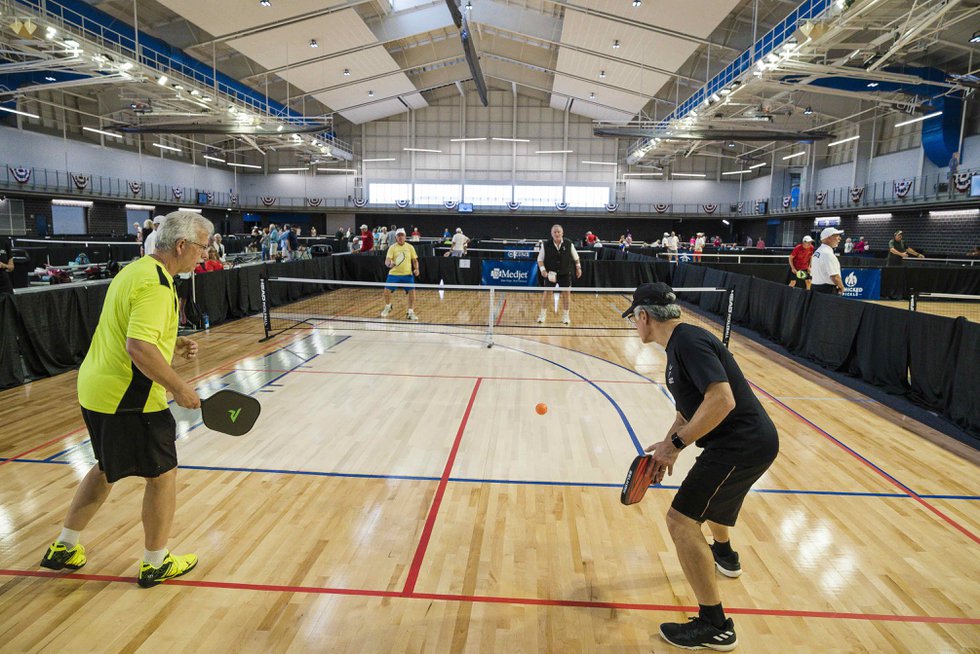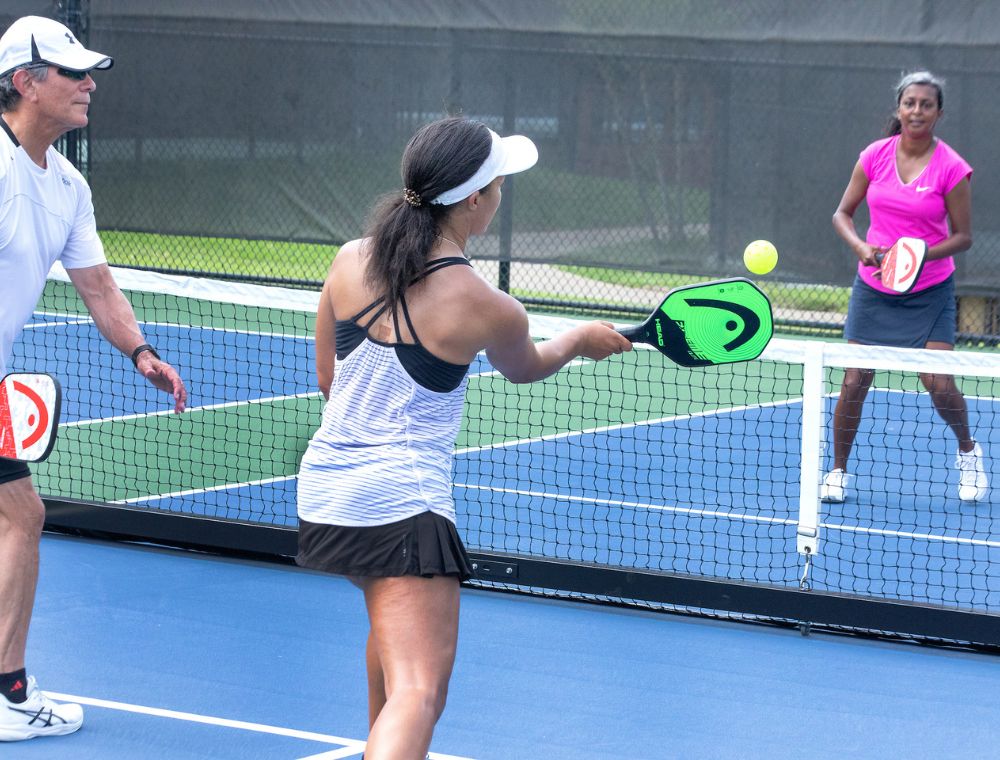Physical Address
304 North Cardinal St.
Dorchester Center, MA 02124
Physical Address
304 North Cardinal St.
Dorchester Center, MA 02124

Facing better players in pickleball can be intimidating, but it’s also one of the best ways to elevate your game. Playing against more experienced opponents pushes you out of your comfort zone, forcing you to adapt and learn new techniques. Whether you’re looking to hold your own or simply use these matches as learning opportunities, here are some key strategies to help you improve and gain confidence on the court.

One of the most common mistakes when playing against stronger opponents is trying to match their power. While it might seem tempting to hit hard, this can often lead to mistakes.
Pro tip: Control the pace of the game by focusing on well-placed dinks and deep shots to make your opponent work harder.
Better players tend to control the tempo of the game, making you feel rushed. The key to competing is staying calm, even when you feel the pressure building.
Pro tip: Between points, take a few seconds to breathe and regroup, keeping your mind clear and focused.
Playing against better players gives you a unique chance to study their tactics up close. Pay attention to how they approach the game, and absorb as much as you can.
Pro tip: After the game, reflect on their playstyle and think about what you can incorporate into your own game.
Even if your opponent has more experience, you can still make the game competitive by leveraging your strengths.
Pro tip: Don’t try to mimic their game. Focus on using your own skills and play style to your advantage.
The most important aspect of playing better players is learning. Each game offers valuable lessons on strategy, technique, and mental toughness.
Pro tip: Keep a journal of what you learn after each match. Over time, you’ll track your progress and identify areas to continue developing.
You can’t control how skilled your opponent is, but you can control your own attitude, effort, and focus.
Pro tip: Focus on the process of improvement rather than the outcome of the match. Winning is a bonus, but learning is the real victory.
Playing pickleball against better players can be a humbling experience, but it’s also one of the fastest ways to grow. By focusing on consistency, learning from your opponent’s strategies, and playing to your strengths, you can hold your own on the court while gaining valuable insights into your own game. Each match is an opportunity to refine your skills and develop new strategies, and over time, you’ll find yourself competing at a higher level.
Remember, the goal isn’t just to win – it’s to improve, learn, and become a better pickleball player with every match.